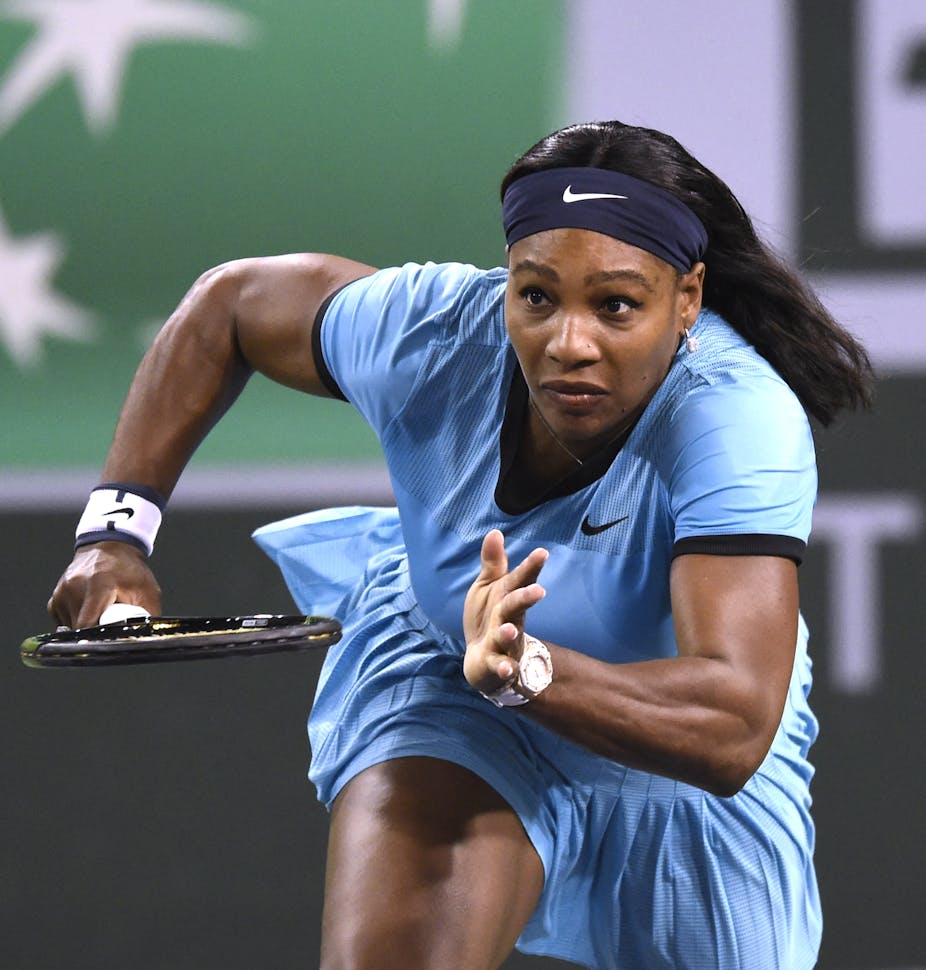There was a right stooshie (as we Scots would say) after the recent comments made by Raymond Moore, (now former) CEO of the Indian Wells Open, about women’s tennis. But the incident, in which he suggested that women should “get down on their knees” to thank the men’s game, may not have rumbled on quite so far if Novak Djokovic, currently ranked number one on the men’s tour, hadn’t stoked the flames further with a defence of unequal prize money.
Unsurprisingly Moore – and later Djokovic – received heavy criticism from across the tennis world and sparked discussions about equality in sport across the media. Moore resigned on Monday, his position untenable. Katrina Adams, CEO of the United States Tennis Association, said: “There is no place in our sport for antiquated, sexist or uninformed ideologies.”
By mid-week Djokovic had also apologised to those who had taken his comments “the wrong way”, adding he didn’t mean to cause controversy when he said men deserved a greater share of the prize money. He said “euphoria and adrenalin” had got the better of him.

The intense media scrutiny will no doubt now subside. However, in his post-match interview at Indian Wells, Djokovic went further. Having set the cat among the pigeons on prize money, he enunciated his respect for sports women, reminding us – in case we didn’t know – that women and men are biologically different:
I have tremendous respect for what women in global sport are doing and achieving. It’s knowing what they have to go through with their bodies, and their bodies are much different than men’s bodies. They have to go through a lot of different things that we don’t have to go through. You know, the hormones and different stuff, we don’t need to go into details. Ladies know what I’m talking about.
At first sight Djokovic’s comments appear unoffensive. It’s possible, even probable, that the world’s best male tennis player was expressing genuine respect for the achievements of his female counterparts. In going beyond that straightforward expression of respect, and in the context of his comments about prize money, however, Djokovic strayed into the territory of everyday sexism. Less explicit than Moore’s utterance, Djokovic evoked the 19th-century narrative of biological reductionism in a 21st-century form.
Sport and the female body
Jennifer Hargreaves and others have explained how biological facts about women’s bodies became part of a coherent, supposedly factual system of ideas, values and beliefs that placed females in a subordinate relationship to men. And in scientific arguments, they were used “to depict women as passive victims of their biology”.

Sport wasn’t the only sphere of activity in which women and girls were constrained by this ideology. However, as Hargreaves says, “biological ideas were used specifically to construct social ideas about gender and to defend inequalities between men and women in sports”.
In addition to his controversial view on unequal pay, Djokovic couches his comments with a caveat – his respect for the global achievements of his female counterparts. This serves to soften his remarks on unequal pay. But then he also seems to suggest that women’s achievement is overcoming an inherent biological difference.
Recycling old myths
We’re a long way along from the ideology of biological reductionism that characterised the late-19th century. Yet Djokovic evokes that narrative in a form suited to our epoch – and how everyday ideologies around the female body are sustained and recycled in sport.
We encounter such ideology in our everyday lives. Take, for example, the idea that because men are, generally speaking, physically stronger than women, male sport is inevitably “better” than women’s. Similarly, everyday phrases such as “throw like a girl” are rooted in the disparaging, sexist notion that girls are not athletic. These are then reinforced and confirmed by what we see, hear and read in seemingly innocuous but powerful affirmations of what we erroneously assume to be the inherent abilities of boys and girls, men and women.
Stereotypes we see and hear in the media, the governance of sport, and the labelling of sport as “women’s football” or “ladies’ golf”, sustain a coherent ideological system that then feeds back into the loop, marking women’s sport as not simply different, but something that in some way falls short of real sport. What’s more, the myth that men’s bodies are supposedly “more suited” and therefore “matter more” in the realm of physical performance is maintained.
Women’s sport and female athletic achievement have made substantial strides from the restricted biological determinism of the 19th century. Women – and men – do have hormones; the biological nature of woman means that we menstruate, bear children and experience the menopause. But women achieve the faster, higher, stronger push in sport just as well as the next man.
In 2016, the relationship between biological “facts” and the female body are still embedded in the ways we think about women’s contributions to social, cultural and political life. Sport may be a last bastion where the privileged social, cultural and political position of men is preserved on this basis. If we are to make further progress on equality, it is important that we call out the hidden and recycled myths about female bodies.

